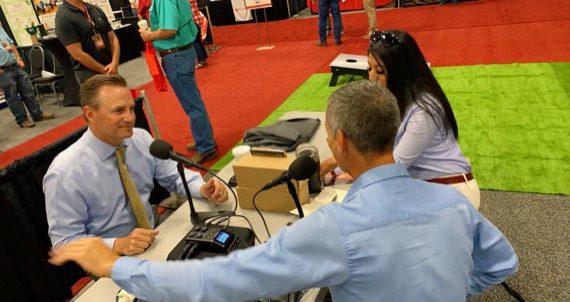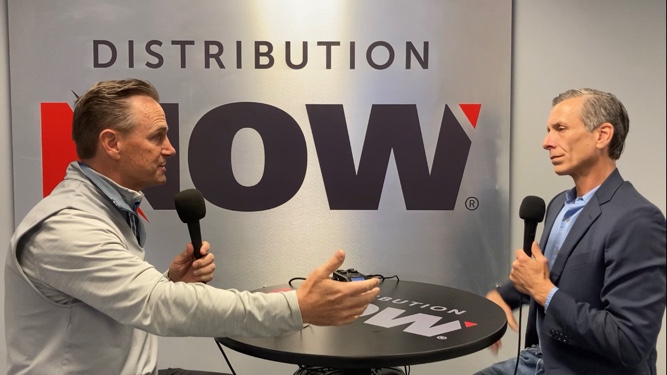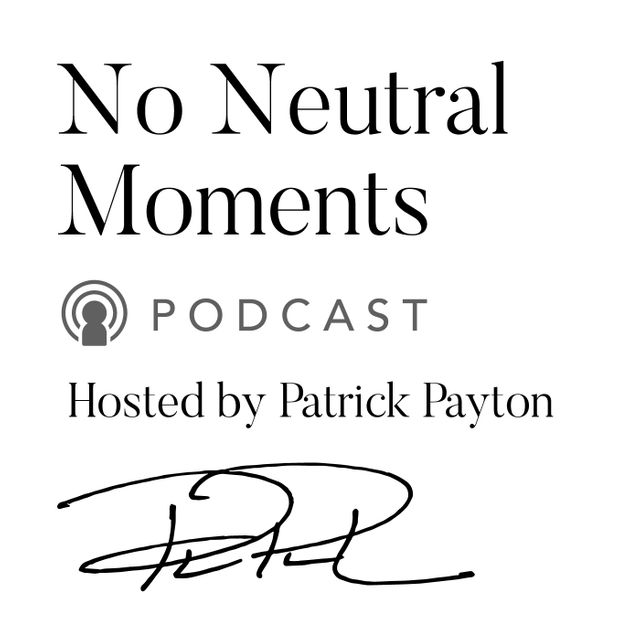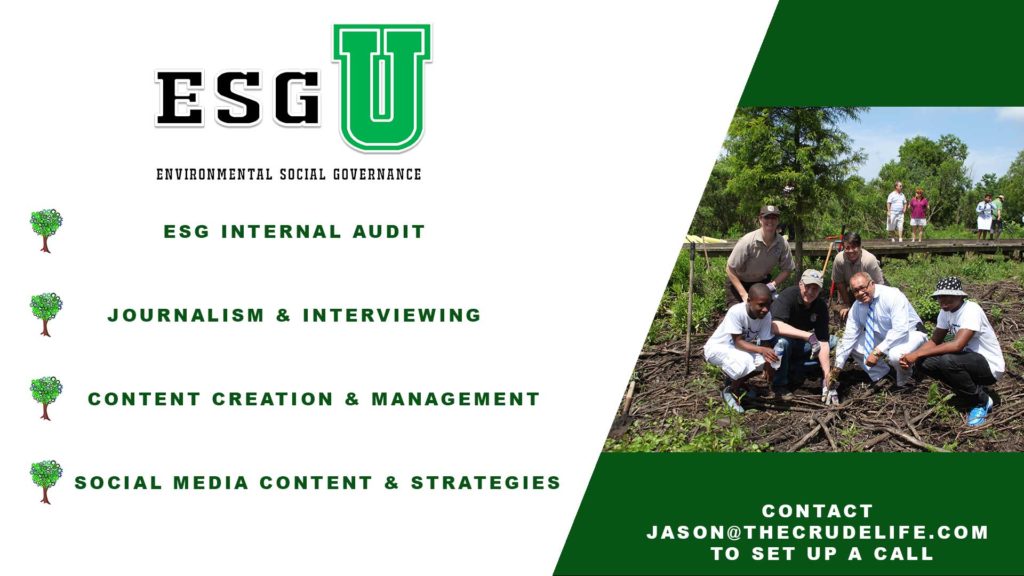
April is Sexual Assault Awareness Month (SAAM) and National Child Abuse Prevention Month and The Crude Life continues to create awareness for organizations, communities and individuals who are shedding light on this critical issue for humanity. The recent episode of “No Neutral Moments”, the Mayor of Midland Texas Patrick Payton addresses one of the fastest growing issues in the United States – sex trafficking. In his recent episode, he interviews Lisa Bownds—director and founder of Reflections Ministries, an emergency assessment center with aftercare programs for victims of sex trafficking. Bownds, who was a member of Payton’s church, became “awakened” to the issue of Sex Trafficking through her own personal experiences.
Patrick and Lisa dive deep into the issue, so much his podcast cites a “disclaimer for sensitive material”.
“The thing that is alarming is you hear the word sex trafficking and your mind cannot comprehend how extensive it is,” Payton said. “It’s a $150B industry in the United States. Most children are groomed into sex trafficking before they are 17-years-old. It’s 12 or 13, it’s 8 or 9, these are hard things to hear but they are trafficked 30-to-40 times a day.”
Mayor Payton believes this is one area the industry can become very helpful and proactive like adding warning signs to safety classes and training curriculums.
“There’s a wake up happening towards this issue here in the Permian Basin. The average predator is an average white man 50-year-old,” Payton said. “We have to wake up to this, we have to make sure our industry wakes up to it and we have to make sure that at man camps and other places where they do safety meetings they are talking about more than the safety of wearing a hard hat but the safety of your sexuality and what is happening around you.”
Reflections Ministries:
info@reflectionministriestx.org
432-247-1099
Contact Reflections anonymously
National Human Trafficking Hotline: 1-888-373-7888
Live Chat: humantraffickinghotline.org
In 2003, 1,400 minors were arrested for prostitution, 14% of whom were younger than 14 years old. A study conducted by the International Labor Union indicated that boys are at a higher risk of being trafficked into agricultural work, the drug trade, and petty crime. Girls were at a higher risk of being forced into the sex industry and domestic work. In 2004, the Department of Labor found 1,087 minors employed in situations that violated hazardous occupation standards. The same year, 5,480 children were employed violating child labor laws.
In 2017, there were an estimated 79,000 child sex trafficking victims in Texas, according to a two-year research study by the University of Texas.
In 2018, an estimated 10,000 people in New Mexico are being sexually victimized by traffickers every day, according to KRWG News.
Due to the secretive nature of trafficking, it is difficult to piece together an accurate picture of how widespread the problem is.
Sex trafficking in the United States is a form of human trafficking which involves reproductive slavery or commercial sexual exploitation as it occurs in the United States. Sex trafficking includes the transportation of persons by means of coercion, deception and/or force into exploitative and slavery-like conditions, and is commonly associated with organized crime.
It has been estimated that two-thirds of trafficking victims in the United States are US citizens. Most victims who are foreign-born come into the US legally, on various visas. State Department estimated that between 15,000 and 50,000 women and girls are trafficked each year into the United States.
The measures against trafficking of women focus on harsher criminal legislation and punishments, and improving international police cooperation. There are vast media campaigns which are designed to be informative to the public, as well as policy makers and potential victims.
According to the US Department of State, trafficking, both a grave crime and a human rights abuse, compromises national and economic security, undermines the rule of law, and harms the well-being of individuals and communities everywhere. It is a crime of exploitation; traffickers profit at the expense of their victims by compelling them to perform labor or to engage in commercial sex in every region of the United States and around the world. With an estimated 24.9 million victims worldwide at any given time, human traffickers prey on adults and children of all ages, backgrounds, and nationalities, exploiting them for their own profit.

Forms of Human Trafficking
Forced Labor: The term forced labor is defined in two separate sections of the U.S. Code. In the criminal statutes of Title 18, it encompasses the range of activities – recruiting, harboring, transporting, providing, or obtaining – involved when a person uses force or physical threats; psychological coercion; abuse of the legal process; a scheme, plan, or pattern intended to hold a person in fear of serious harm; or other coercive means to compel someone to work. Once a person’s labor is obtained by such means, the person’s previous consent or effort to obtain employment with the trafficker does not preclude the person from being considered a victim, or the government from prosecuting the offender. In the customs-related statute of Title 19, it is also defined in connection with the prohibition on the importation of goods produced wholly or in part by forced labor, including forced child labor; convict labor; and indentured labor under penal sanctions.
Debt Bondage: U.S. law prohibits the use of a debt as a form of coercion to compel a person’s labor. Some workers fall victim to traffickers or recruiters who unlawfully exploit an initial debt assumed as a condition of employment, while in certain countries some workers “inherit” the debt. Although contract violations and hazardous working conditions for migrant laborers do not in themselves constitute human trafficking, the imposition of costs and debts on these laborers can contribute to a situation of debt bondage. In other cases, employment-based temporary work programs in which the workers’ legal status in the country is tied to a particular employer present challenges to workers who would like to flee from such an employer.
Domestic Servitude: Working in a private residence can create unique vulnerabilities, particularly because what happens in a private residence often is hidden from the world, and it is easy to isolate a worker in a private residence. Domestic workplaces are often informal, connected to off-duty living quarters, and not shared with other workers. Such an environment is conducive to exploitation because authorities cannot inspect private homes as easily as formal workplaces. The use of informal, or even verbal, employment contracts compounds vulnerability. Foreign domestic workers are particularly vulnerable to abuse due to factors such as language and cultural barriers and lack of community ties.
Forced Child Labor: Although children may legally engage in certain forms of work, forms of slavery or slave-like practices – including the sale of children for exploitation, forced or compulsory child labor, and debt bondage and serfdom of children – continue to exist, despite legal prohibitions and widespread condemnation.
Sex Trafficking: When a person is required to engage in a commercial sex act as the result of force, threats of force, fraud, coercion or any combination of such means, that person is a victim of human trafficking. Under such circumstances, perpetrators involved in recruiting, enticing, harboring, transporting, providing, obtaining, advertising, maintaining, patronizing, or soliciting a person for that purpose are guilty of the federal crime of sex trafficking. This is true even if the victim previously consented to engage in commercial sex.
Child Sex Trafficking: Any child (under the age of 18) who has been recruited, enticed, harbored, transported, provided, obtained, advertised, maintained, patronized, or solicited to engage in a commercial sex act is a victim of human trafficking regardless of whether or not force, fraud, or coercion is used. The use of children in the commercial sex trade is prohibited both under U.S. law and by legislation in most countries around the world.
If anyone would like to schedule an interview, meeting or news tip email studio@thecrudelife.com
Industrial Integrity and Energy Ethics are the new entry level expectations in oil and gas, and The Crude Life continues to create original Local, Boots-On-The-Ground Journalism while showcasing other environmentally conscious companies.
Communication is vital in today’s energy extraction and empowerment.
About The Crude Life
The Crude Life produces original content that focuses on industry, the people, energy innovations, community building and it’s proactive culture. Our custom content is non-polarizing, trusted and often news making.
The Crude Life promotes a culture of inclusion and respect through interviews, content creation, live events and partnerships that educate, enrich, and empower people to create a positive social environment for all, regardless of age, race, religion, sexual orientation, or physical or intellectual ability.
Part of our mission is to enable people, companies and communities to affect change, demonstrate their transformative actions and drive energy awareness through storytelling and access to resources.
Sponsors, Music and Other Show Notes

Studio Sponsor: The Industrial Forest
The Industrial Forest is a network of environmentally minded and socially conscious businesses that are using industrial innovations to build a network of sustainable forests across the United States.
Weekly Sponsor: KBL Complete Services
Strikingly dynamic, incomparably strong and absolutely reliable, KBL Complete Services excels at all of your pipeline needs. From AGM Surveys, ILI tool tracking, Digsite Locating, and Equipment Decontamination, to Project Management, KBL Complete Services are ready to make your project a success.

Weekly Sponsor: Great American Mining Co
Great American Mining monetizes wasted, stranded and undervalued gas throughout the oil and gas industry by using it as a power generation source for bitcoin mining. We bring the market and our expertise to the molecule. Our solutions make producers more efficient and profitable while helping to reduce flaring and venting throughout the oil and gas value chain.

Join Podcasters from across the world and all walks of life as they unite to bring civil solutions to life and liberty.

Studio Email and Inbox Sponsor: To Be Announced

Featured Music: Alma Cook
For guest, band or show topic requests, email studio@thecrudelife.com
Spread the word. Support the industry. Share the energy.




